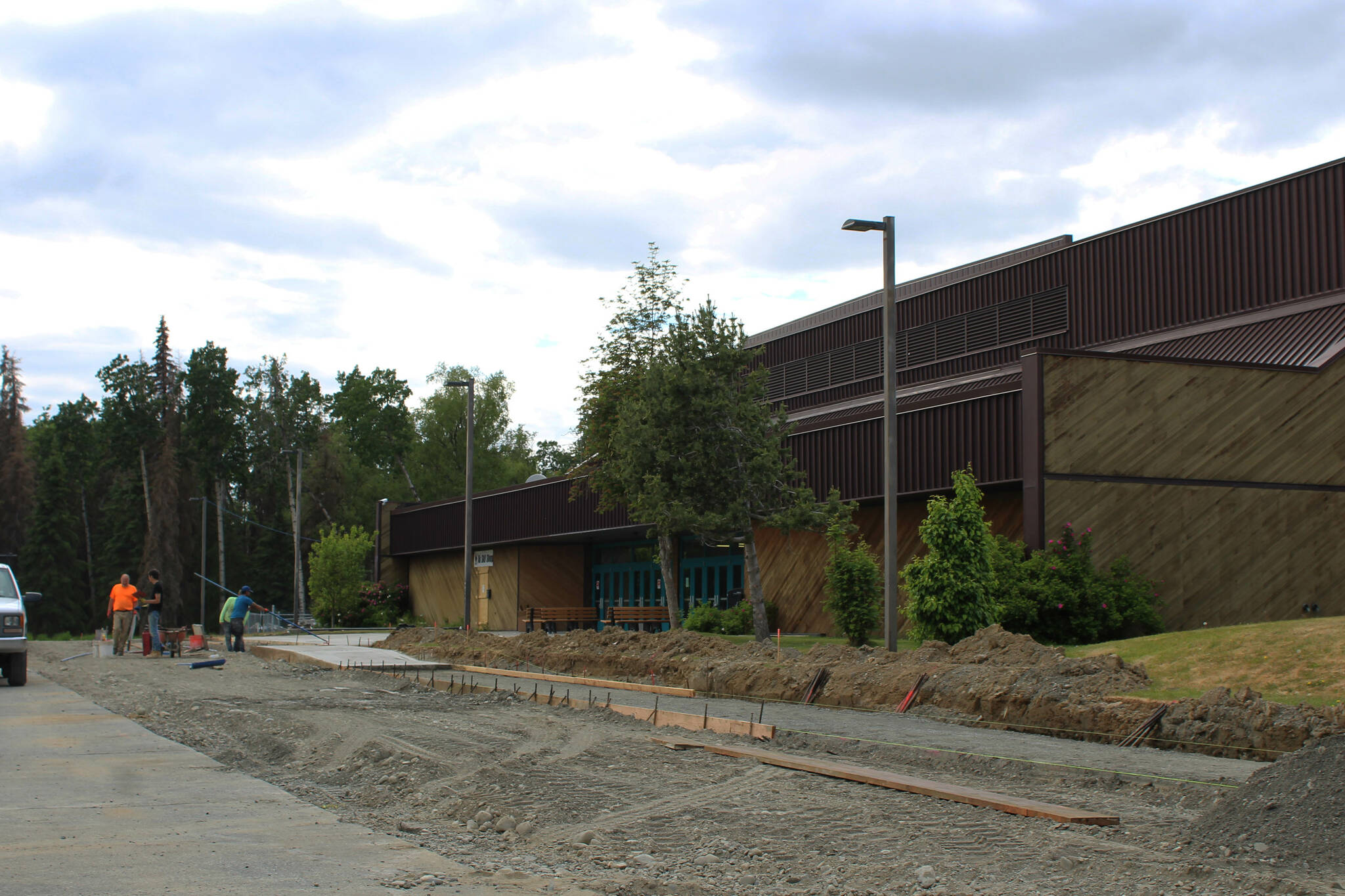The fate of a 42,000 square-foot field house in Soldotna will once again be in the hands of city voters come October. The Soldotna City Council on Wednesday voted unanimously to put the issue on this year’s municipal ballot.
Soldotna voters this fall will decide whether or not the city should incur up to $15 million in debt, which would pay for about three-quarters of the project. As designed, the 42,000 square-foot field house would be located next to and connected to the Soldotna Regional Sports Complex and would accommodate multiple types of indoor recreation.
As of June 2022, the field house project is expected to cost around $19.54 million. That’s compared to the $18.7 million cost estimate provided the last time the city considered the project. A different bond proposition to fund the field house failed during a special election in March 2019 by 18 votes.
If completed, the field house would feature a 215-foot-by-115-foot play area with removable turf that would allow for soccer, football and batting cages. The sports court could host wrestling, volleyball and roller derby. The three-lane track on the second floor would be available for walkers and runners. Indoor recreation is in addition to the other activities the facility could facilitate, the city said, such as private parties, sports camps and trade shows.
Proposed field house amenities also described are a multipurpose room available for party rentals, two locker rooms, divider curtains that would allow multiple events to happen at the same time and audio and visual functionality that could be used for meetings and events.
One of the field house’s key assets, city administrators said, would be its central location. If put adjacent to the Soldotna Regional Sports Complex, the field house would be located within a 45-minute drive from 37,000 people — about 64% of the Kenai Peninsula Borough’s total population, the city estimates.
Soldotna City Manager Stephanie Queen told council members Wednesday that, if approved by voters, issuance of debt would likely begin in early 2023. To cover the difference between the project cost and the up-to debt amount, Queen said, the city is exploring “everything we can think of,” including requests for federal dollars, low-interest loan programs and potentially money from the city’s general fund.
“Ultimately, between the public works director, the finance director and myself, we feel that the city is well situated to take on this debt if this is a project that the council wanted to put forward in front of the voters.”
Council members heard testimony from two residents on the issue Wednesday.
Nancy Eoff testified in support of putting the question on the ballot and said that a field house would be a “strong magnet” for bringing people to the community. Eoff urged the city to make as clear as possible before the election how much money each voter would pay.
“So much work has gone into it and so much planning and thought,” Eoff said. “Our community would be a better community. I’m excited about it. I hope it goes forward.”
In contrast, Cathy Sturman testified in opposition to the council putting the question on the ballot, saying that the field house is “for special interests.” Sturman said she and her dad helped spearhead opposition to the March 2019 bond to fund the field house, which failed by 18 votes.
“I feel like it’s for special interests,” Sturman said. “It’s for people that are into sports, it’s not, you know, for me. I’m not going to be using it.”
Now is not the time, Sturman said, to be putting a financial burden on city residents through a bond. She said there is a group of people that will get together and campaign against the bond if the question appears on the Oct. 4 ballot.
“I will fight it again,” Sturman said.
Council member Jordan Chilson pushed back on the idea that the field house would only appeal to one user group and said there’s been a lot of effort into making the project open to all community members.
“I worry about the mental health effects that we’ve seen, just compounded with COVID, with people trapped inside and just not able to go outside and just be part of their community and get their blood moving,” Chilson said. “It’s, you know, it’s a physical thing and it’s also a mental health thing. I think it has a lot of potential benefits for everyone in our community.”
Council members voted unanimously to put the bond question on the city’s Oct. 4 ballot. The Soldotna City Council’s Wednesday meeting can be viewed on the city’s website at soldotna.org.
Reach reporter Ashlyn O’Hara at ashlyn.ohara@peninsulaclarion.com.

